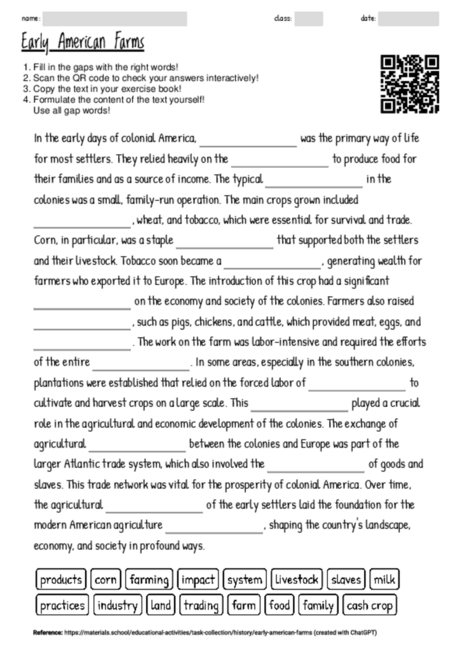Early American Farms
The use of cloze texts, such as the one provided on colonial agriculture in early America, offers several advantages in educational contexts. Firstly, it engages students by requiring active participation to fill in the blanks, enhancing their retention of the material. This technique also helps educators assess students' comprehension of the topic without the need for a formal test. By focusing on key terms, students are encouraged to grasp the essential aspects of colonial agriculture, including the types of crops grown, the role of family farms, and the impact of slavery on plantation agriculture. This method promotes critical thinking as learners must understand the context to identify the correct terms. Furthermore, the cloze text can serve as a starting point for discussions about the economic and social aspects of early American life, linking agriculture to broader historical themes. The simplicity of the text makes it accessible to a wide age range, particularly suitable for the 12 to 16 age group, ensuring that the content is engaging yet challenging enough to stimulate interest and learning. Overall, this approach to learning about colonial agriculture can foster a deeper understanding of American history and its agricultural roots.

